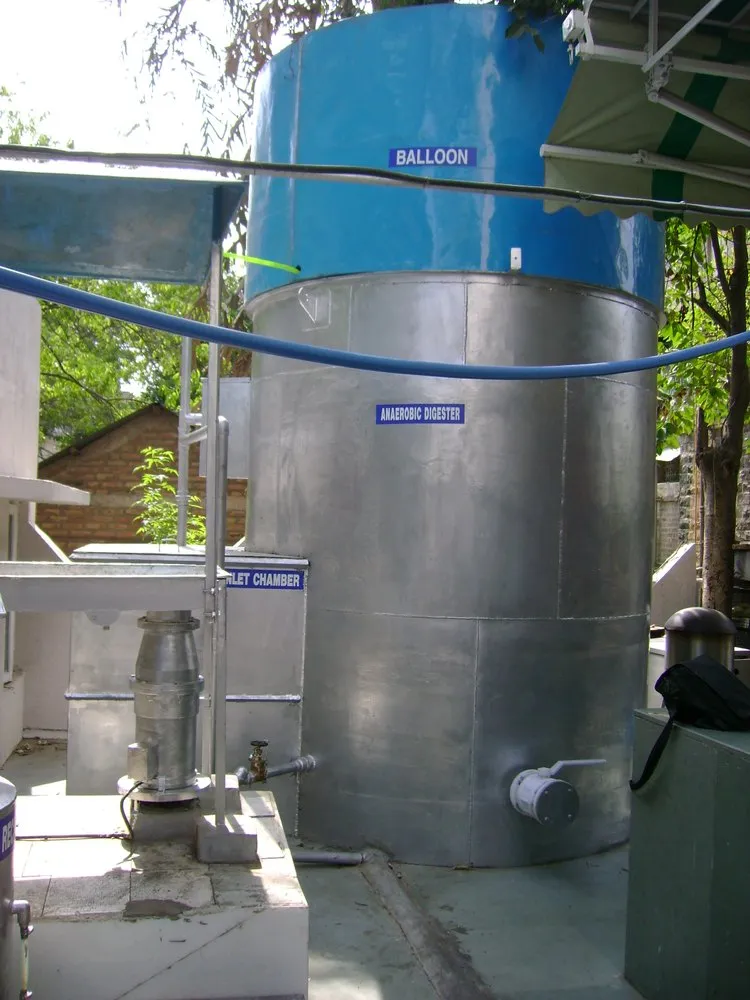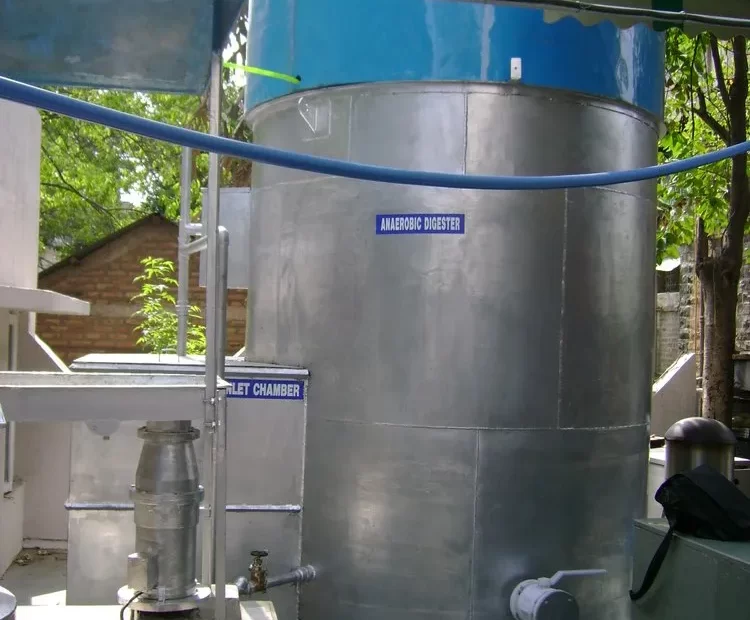
Converting food and agricultural waste to biogas and fertilizer
Organic wastes can be transformed with microbial processes to biogas which has a valuable carorific value approximatelly the half of natural gas. The food wastes of the hotel can be anaerobically digested with bacteria producing biogas. Additionally, agricultural by-products and wastes can be used for biogas production. The produced biogas can be used in the hotel either for heating or for cooking in the kitchen. Several hotels worldwide are currently processing their organic wastes for biogas production. The process recycles the organic wastes of the hotel generating green energy and a useful fertilizer reducing its environmental footprint and promotic the circular economy.
- Crown Plaze Hotel, Copenhagen, Denmark
All food waste generated in the hotel is ground and vacuum-extracted into a 10,000 lit tank located in the basement. When the tank is full, it is emptied and the food waste is transported to a biogas plant, where it is converted into biogas. The remaining waste is later used as agricultural fertilizer, which reduces the consumption of artificial fertilizer by the agricultural sector.
2. Hotel Barrière Ribeauville Resort, France
The use of biogas, 100% natural heating of the Hotel Barrière Ribeauvillé Resort, is one example. The hotel-resort in Ribeauville, in the heart of Alsace, is the very first establishments in Europe to be entirely heated naturally, thanks to the methanization (biogas) from agricultural and food waste. The project is based on a partnership between the Hotel Barrière Ribeauvillé Resort and the company Agrivalor. The principal is innovative: organic waste produce methane; this methane fuels a co-generator which produces electricity, the heat generated is recuperated and sent to the Hotel Barrière Ribeauvillé Resort to heat spaces. The company Agrilor Energie provides thus the energy necessary to meet 100% of the needs of the Barrière Hotel and balneotherapy resort, that is 56 rooms, 2 suites and a 36,000 m2 balneotherapy center out of which 550 m2 are interior and exterior pools.
3. Reethi Beach Resort, Maldives Islands
In order to handle food waste in a sustainable way, the Reethi Beach Resort on the Maldives employs a biogas plant. The gas that is produced from about half of all leftovers is used for cooking; the residual sludge and water are utilized as fertilizer and for irrigations. This concept has proved to be successful: three more plants are planned to be employed at the recently opened Reethi Faru Resort, so that soon all of the food waste will be processed.
The hotels run by CGH Earth use biogas plants to recycle leftovers as well, but they also transform them into compost for their herbal and vegetable gardens. Spice Village employs a vermicomposting system – and in this way processes 150 to 250 kg of cooked food, meat and vegetable scraps every day.
